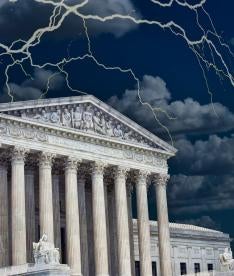The U.S. Supreme Court, in a unanimous opinion issued yesterday in Groff vs. Dejoy, changed the standard that most employers must consider and apply when deciding how to deal with – and when they may lawfully reject – employees' requests for accommodations of religious practices pursuant to Title VII of the Civil Rights Act of 1964.
That standard had been in place for decades.
The standard was a forgiving one, at least as far as employers were concerned. Title VII prohibits covered employers from discriminating in employment with respect to the "religion" (among other prohibited criteria) of employees and requires employers to reasonably accommodate employees' religious practices.
That requirement, however, comes with a limit. Such accommodations are required unless they would impose an “undue hardship on the conduct of the employer's business” – in which case an employer is free to refuse to make an accommodation. Courts, for decades, had interpreted “undue hardship” to mean any effort or cost borne by the employer that was “more than ... de minimis” – "which is to say so 'very small or trifling' that" the effort or cost is "not even worth noticing." That's a low bar.
The bar has been raised. A new standard applies now, and employers, and those responsible for managing their employees, had better know what it is because getting it wrong could lead an employer to commit (intentionally or not) a violation of Title VII, which could, in turn, lead to significant legal liability and expense.
The new standard is this: For a covered employer to defend denial of a religious accommodation under Title VII, the employer must be able to "show that the burden of granting an accommodation would result in substantial increased costs in relation to the conduct of its particular business''. Whatever "substantial increased costs" means, much less "in relation to the conduct of its particular business" – years of litigation may be required to figure that out – those terms surely require more of employers than having to demonstrate burdens that are merely “more than ... de minimis."





 i
i


